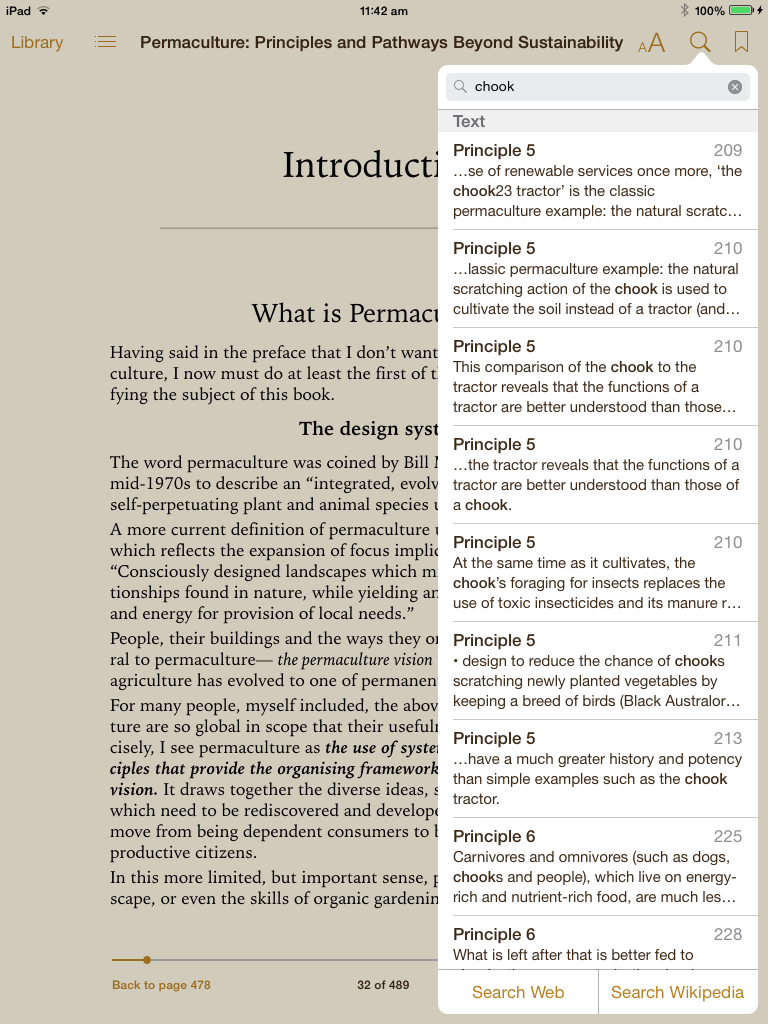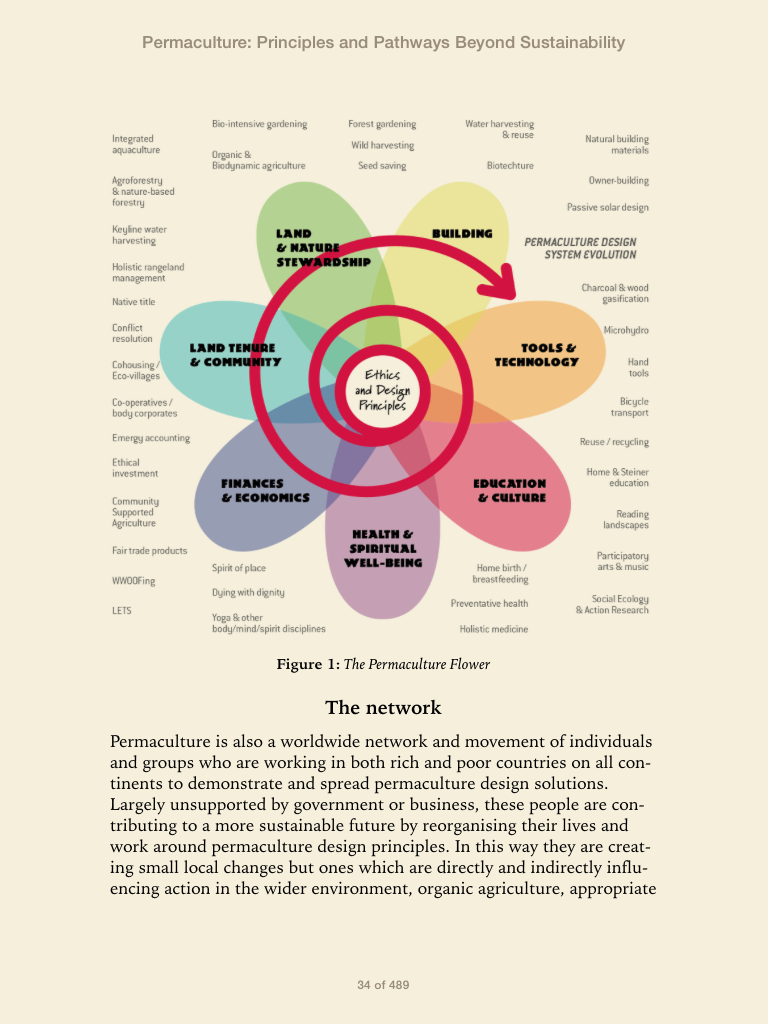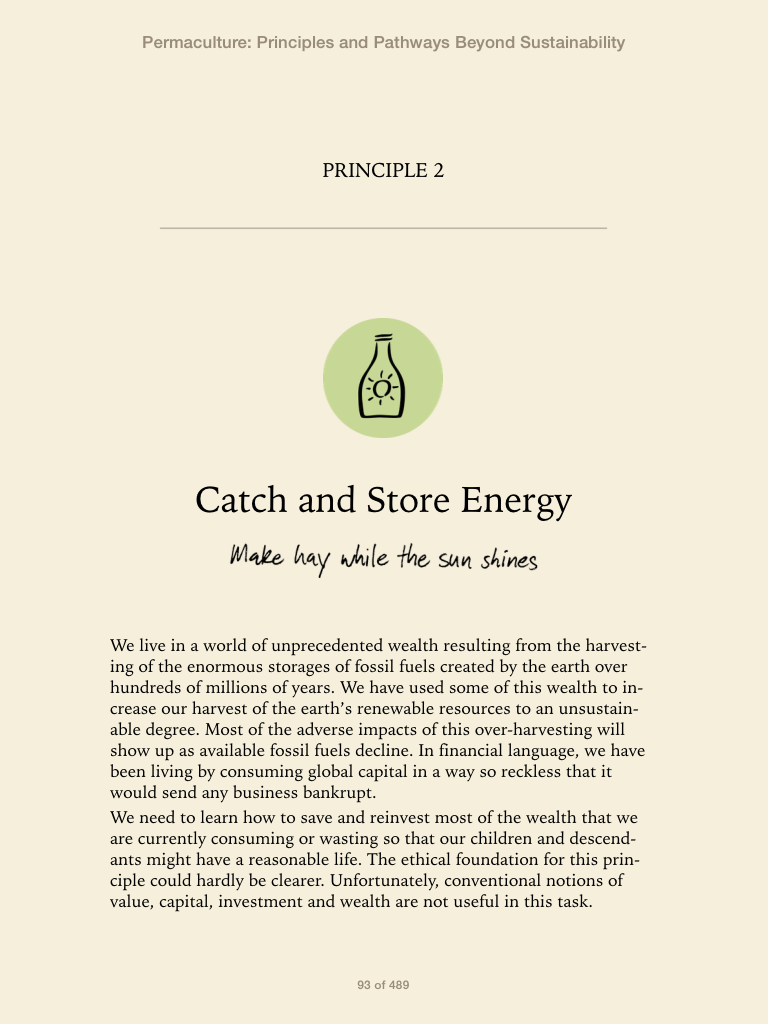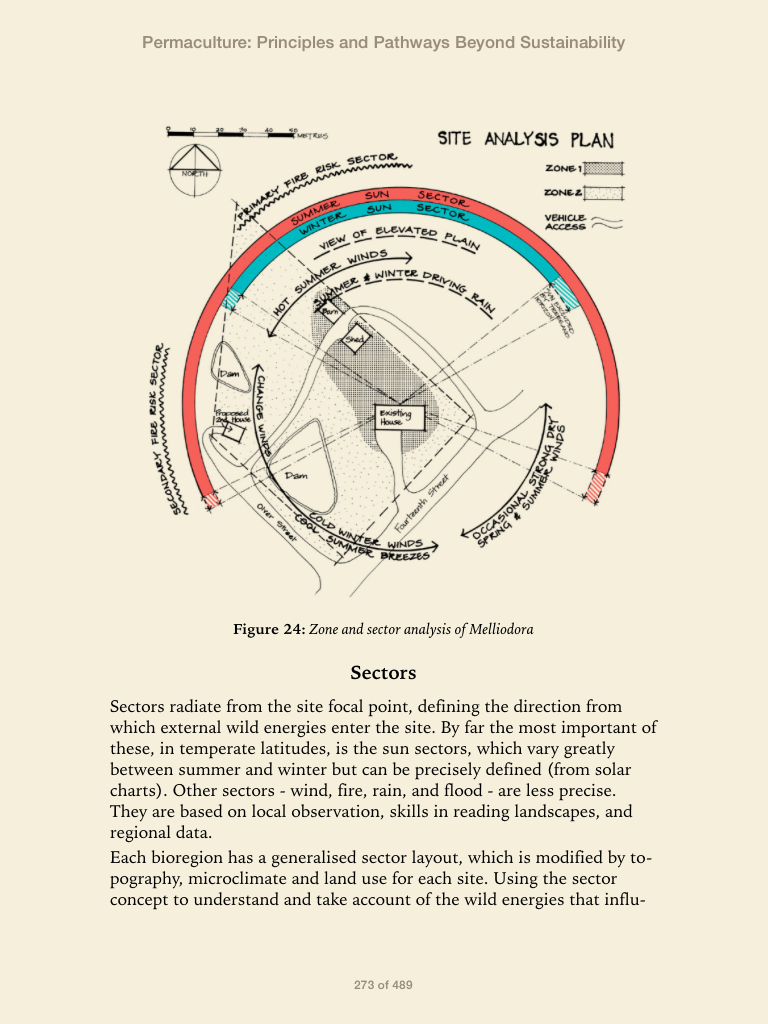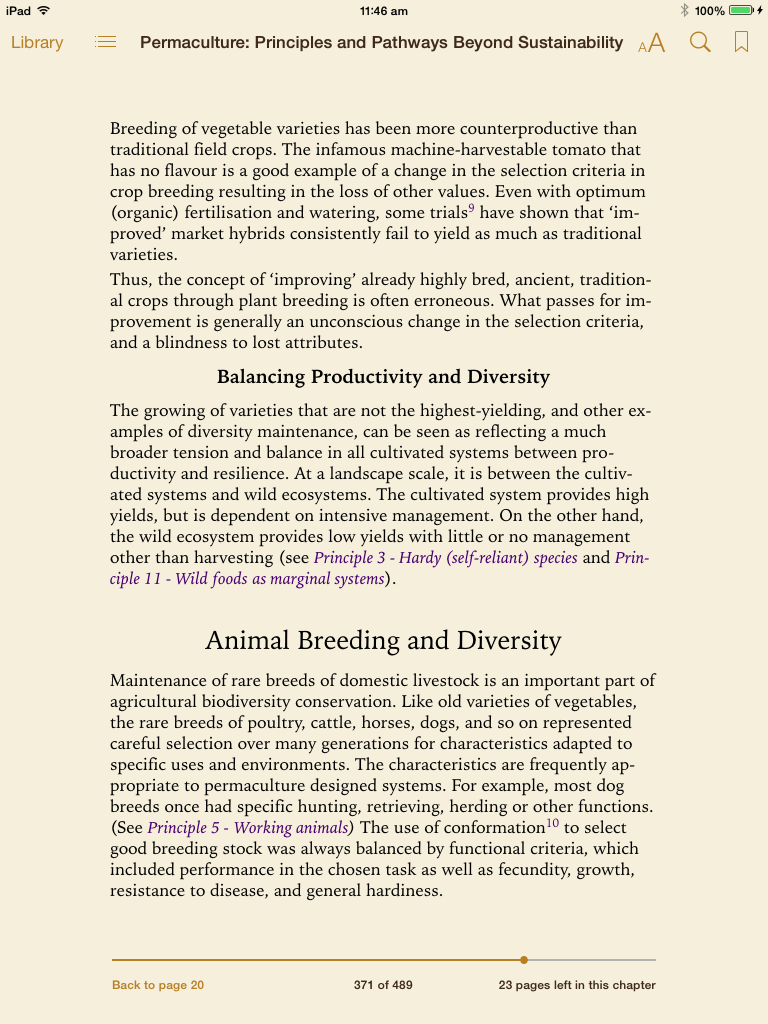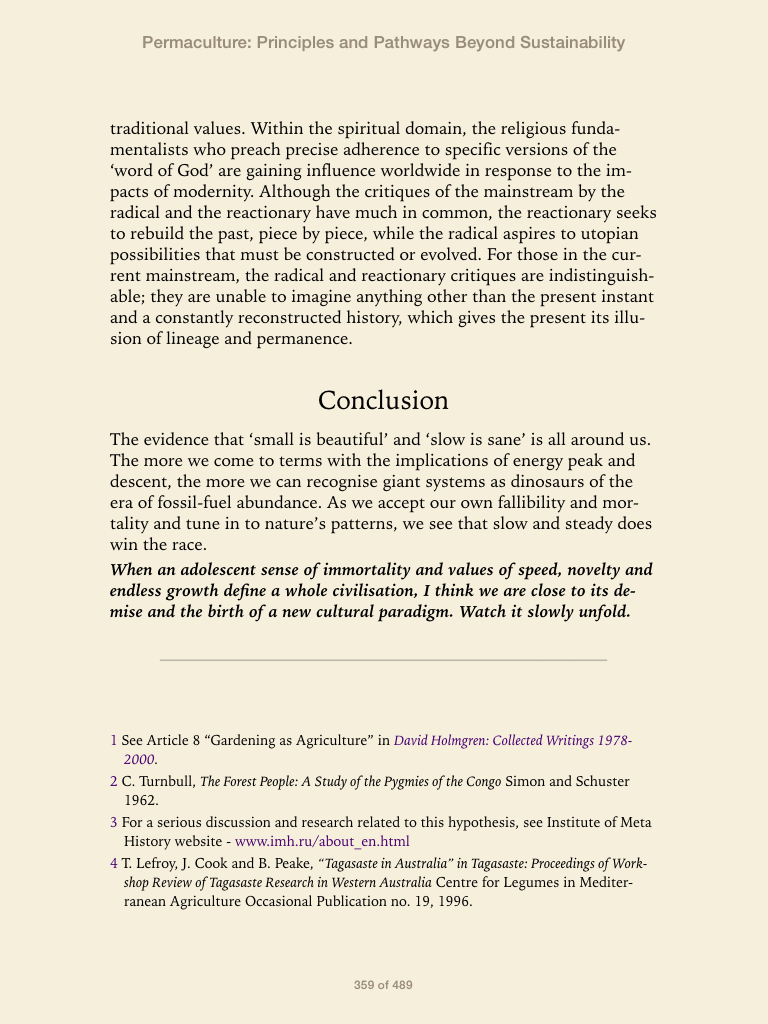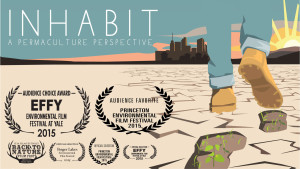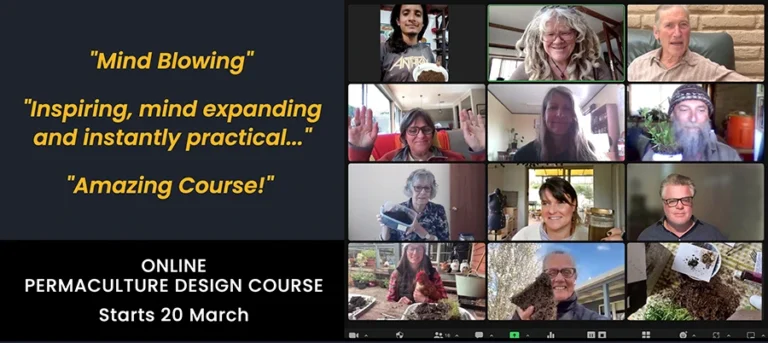An extract of David Holmgren’s prologue from the newly released eBook edition of Permaculture: Principles and Pathways Beyond Sustainability
The world has changed radically since Permaculture: Principles and Pathways Beyond Sustainability (PP&PBS) was first published in 2002. By many environmental, economic and social measures, local communities and global systems are now in crisis and even collapse. The premise of the book was that the ‘energy descent’ future would inevitably require new ways of thinking to replace the failing principles that guided industrialisation, modernity and globalisation.
In reflecting on the book, I remain happy with the eclectic mix of abstract theory, grounded examples and personal anecdotes that riled academic and editorial sensibilities. While some ideas and points remain speculative, many others have since become clearer through the course of a growing body of practice and more than a decade of turbulent world history that we have lived through. For example, for the well-informed, Peak Oil has moved from speculative concept to historical reality that underpins the explosive growth in renewable energy, economic contraction and geopolitical realignment. Similarly, the environmentally heretical positive view of species naturalisation that I articulated in the book, is now supported by a rapidly growing body of peer reviewed science within the new field of study of ‘novel ecosystems’.
The delay in producing an eBook version of the text (not having a publisher driven by financial logic) has been fortuitous because it has allowed a comprehensive review of the text to improve grammar, use of terms, and an update and the addition of references. Most importantly the capacities of a digital edition enabled live links to updated web addresses and direct cross referencing to precise points in the text rather than general chapter references. This allows the reader, including those who have read the printed book, to explore in more depth the non-linear nature of systems thinking that accounts for at least some of the difficulty of this work. The fully searchable text allows the reader to easily find a point that this labyrinthian character tends to hide.
Readers of existing translations can be assured that the changes made are of a minor in nature compared to the great difficulty in translation generally and especially for this work. We trust that the painstaking translation work, by those with an understanding of and commitment to the concepts, has captured the text for the better but we hope the text of this digital edition will make any future translations a little easier.
As ever I remain one of permaculture’s strongest internal critics in insisting that for permaculture concepts and teaching to remain relevant, it must be grounded in practical action that regenerates nature and improves the lives of ordinary and especially impoverished people. In addition, it must remain open to influence from parallel and complementary concepts, movements and ideas that are contributing to a gentler and more benign energy descent future in which nature’s wealth is regenerated and humanity finds its place in that natural order.
David Holmgren
Melliodora April 2015
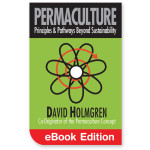 Permaculture: Principles and Pathways Beyond Sustainability eBook is now available from our shop as an ePub for AUD$20. The ePub file download (8.3MB) can be opened and read on most modern smart phones, tablets and desktop computers using appropriate software, like iBooks for Apple users. You can download a sample here.
Permaculture: Principles and Pathways Beyond Sustainability eBook is now available from our shop as an ePub for AUD$20. The ePub file download (8.3MB) can be opened and read on most modern smart phones, tablets and desktop computers using appropriate software, like iBooks for Apple users. You can download a sample here.
489 pages in standard display size on an iPad2


